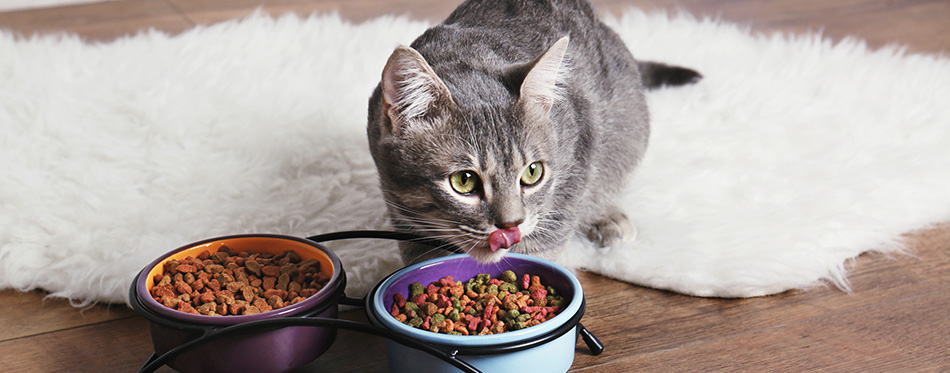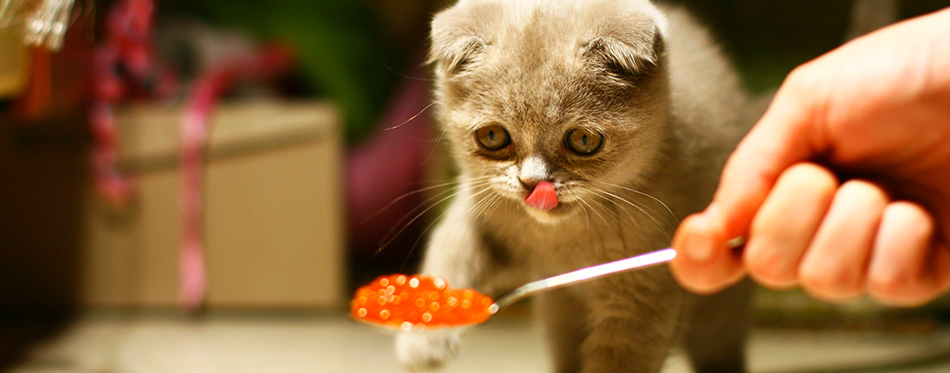If you have ever had your cat get up close and personal licking your face, you will already be well aware that it is not a pleasant experience! Unlike a dog’s wet and smooth tongue, cats have very rough tongues which are more like sandpaper to the touch. What you may not know is why this is the case. The cause of your kitty’s rough tongue is backwards-facing spikes known as papillae, which drag over whatever object they choose to lick. These are made of the same stuff that is found in human fingernails.
In this blog post, we are going to look closer at what cats use their tongues for, and why their roughness is beneficial to the variety of jobs they have.
Secrets of Your Cat’s Tongue
As we mentioned in the introduction, your cat’s tongue is so rough because of the tiny hooks called papillae which cover the surface. The hook-like shape of them is effective in a number of tasks, but the most obvious one is grooming, allowing them to spread their saliva deep into the fur. In fact, the hooks are shaped in a similar way to your cat’s claws, and they generally lie with the barbs pointing towards the neck. When a certain tongue muscle is active, they will stand straight up on end.
Inside the spines are hollow scoops. In fact, the papillae are only a little bit longer in housecats than lions. They are specially designed to hold saliva and release it when pressed against an object, ensuring a deep and thorough cleaning of your kitty’s fur. Without the papillae, the saliva could not penetrate nearly as deep, and the cleansing effect would not be nearly as pronounced.
In terms of taste, cats’ tongues have fewer taste buds than humans. This is why cats don’t tend to have a great desire for sweet food. If you find that your cat does like this type of food, it may be because you are feeding them inappropriately. Cats judge food using their tongues based on its texture, size, and shape.

What Do Cats Use Their Tongue For?
An Eating and Drinking Utensil
Cats’ tongues would have formed an essential part of their eating in the wild, namely, to scrape bones off their prey. And of course, many domesticated cats are still hunters and will use their tongues for the same thing whenever they catch a little bird or rodent! But even if they just stick to regular cat food, their tongues still help to scrape up every last bit of food from the bowl. Otherwise, there would be bits of food wasted.
As for drinking, you may notice that your cat’s tongue forms a cup shape to lap up as much water as possible. By curling the tip of their tongue, they get access to plenty of water by moving it up and down at a very high speed. Bear in mind that cats have sensitive taste buds which can taste whether or not the water is fresh, so make sure that your kitty has continual access to clean water. Head over to our review of cat water fountains for more choices.
Brushing and Detangling
Another useful function of your cat’s tongue is brushing and detangling. Unlike dogs, cats do all of their grooming activities themselves. It is amazing to think that cats spend around a quarter – or even as much as half – of their waking hours on personal hygiene.
When your cat is grooming themselves, first, they will use their tongue to moisten the fur with saliva, keeping it clean and fresh, as well as helping to regulate their body temperature. The barbs on the tongue have the essential function of grabbing and removing any loose fur and debris around their body. Also, they will help to detangle any mats which have built up. Plus, the evaporating saliva will cool your cat as they groom themselves.
However, this doesn’t mean that you have to leave all the work of grooming to your cat alone. In fact, since the barbs face inwards, it is almost impossible for felines to spit out the loose hair which gets removed when they lick themselves – and this often leads to them ingesting the hair. This is how hairballs can accumulate as not all of the hair can pass through their systems. If you comb your cat on a regular basis, this will help to stop hairballs from accumulating. Even more serious if your cat doesn’t cough the hair back up again, it can end up in their intestines, which is why grooming your kitty is a responsibility that it worth taking seriously. For more options, check out our detailed review of cat food for hairballs.
Importance of Grooming
Cats grooming themselves is a behavior which has developed from their days in the wild. When a cat has finished eating, they will groom themselves to remove all traces of it. Otherwise, they could end up alerting other potential prey that there is a hunter nearby. But it is also worth bearing in mind that housecats are small enough to be potential prey themselves, so getting rid of the scent of a fresh kill would be important in their own safety. Cats have a sense of smell which is 14 times more powerful than humans. If you observe mother cats and their children, you will notice that the mother washes herself and the kids thoroughly after nursing them. Further evidence of their wild ancestry can be noticed when you see cats scratching around at the floor after they have finished eating.
Another central reason why cats groom themselves on such a regular basis is so that they can stay cool. Cats do not have sweat glands, so they cannot cool themselves down in the same way as us. As we mentioned earlier, the saliva will evaporate and will have a cooling effect. Grooming can also be a social activity. If you have a multi-cat household, you may notice that they groom each other from time to time.
If your cat is injured or wounded in some way, they can use their tongue to cleanse the area. This helps to prevent any infections from occurring. The other positive effect caused by the roughness of the tongue is the removal of dead skin cells. The action also helps to remove parasites like ticks and fleas. But one of the simplest reasons why cats groom themselves do often is because they enjoy it. The act itself is pleasant and seems to provide a positive sensation in felines, so you should always let your kitty groom themselves as it is serving an important function.
Cats will sometimes groom themselves when they feel anxious or stressed. If your pet grooms themselves excessively, this can even lead to bald patches forming. Cats generally dislike change, and any alternations in circumstances can trigger obsessive grooming behavior. Alternatively, there may be some physical causes such as flea bites or ringworm, so you should check that none of these triggers are causing the issue.
Some cats who were removed from their mothers at a young age did not have a proper weaning period, which can result in self-grooming categorized by sucking or licking. You should notice that this behavior starts to lessen when your cat is in an environment where they feel entirely safe and comfortable.

Dangers of a Rough Tongue
While cats’ tongues are useful in certain situations, they can also prove to be dangerous too. You need to be careful when your cat is playing with dangling objects such as ribbons and yarn. Again, the danger comes in the direction of the barbs on your cat’s tongue. Once the string is caught on them, there is every chance that your cat could swallow it. This is why supervision is so important to stop this potential danger from turning into a serious situation.
If your cat starts licking fabrics and fibers, these can also lead to them trying to chew and swallow them, which is another potential choking hazard.
The obvious answer to why your cat’s tongue feels rough like sandpaper is because the papillae dragging across the surface of your skin creates a grating effect. These papillae were obviously never intended to scrape across human skin, but were primarily intended for grooming, which is one of your kitty’s number one responsibilities. There are all sorts of reasons why this is important including the cleansing of injuries, hiding scents from predators, grooming and lubricating the coat and skin area, and socialization.
If your cat is unable to properly groom themselves, dirt, loose hair, and knots will inevitably start to accumulate. Of course, you can give your cat a helping hand with grooming to ensure that they don’t get hairballs or hair gets stuck in their intestine. To a lesser extent, cat’s tongues are rough to ensure that they can get as much meat as possible from their prey. However, this is obviously less important to domesticated cats who have most of their food fed to them.
Sources:
- Ever wondered why your cat’s tongue feels like sandpaper? – PBS
- Why Do Cats Have Rough Tongues? – international cat care

